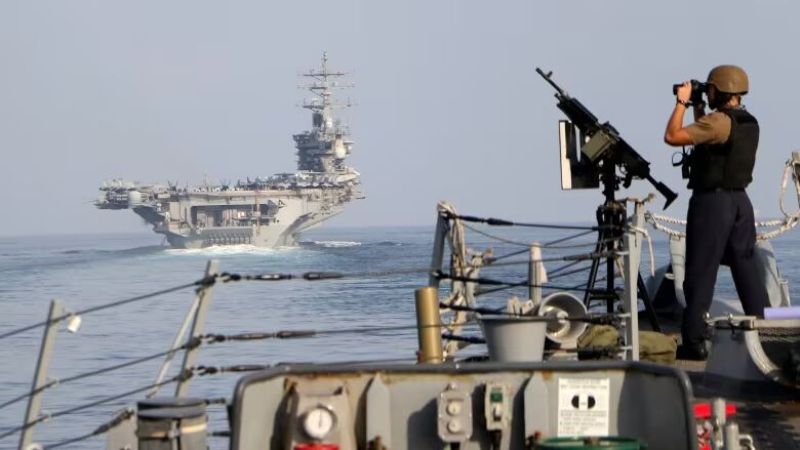Houthi rebels from Yemen have been disrupting the Red Sea trade route for two months with various attacks on civilian vessels. This has made many shippers take the longer and more expensive route around Africa, affecting 12% of the world’s trade. The global economy is suffering as a result. The US and its allies have failed to stop the attacks, which the Houthis claim are a retaliation against Israel’s war with Hamas in Gaza. Shipping costs have quadrupled since November and the situation is expected to continue until the summer.
This means more delays and more expenses. Companies must keep more goods in transit and stock up more in case of shortages. The factories that make the metal boxes for shipping are working non-stop. Ports in places like Halifax, Canada, are struggling to cope.
Some companies have already felt the impact. Volvo and Tesla have stopped making cars in Europe because they can’t get parts from Asia. Tesco and Marks & Spencer have warned of higher prices. Maersk, the second-biggest container carrier, said the disruptions will continue. Many others are worried about the future.
Alexis Crow, an expert on geopolitics and investing, said many people have underestimated the risk of the Red Sea crisis. They think the Israel-Hamas conflict will not affect them. But they are wrong. The Red Sea is a vital lifeline for the world economy. And it is under threat.
The Cost of Chaos
Yemeni rebels have been targeting civilian vessels in the Red Sea for two months, disrupting 12% of the world’s trade. They claim to be retaliating against Israel’s war with Hamas in Gaza. Shippers are forced to take the longer and costlier route around Africa, carrying goods like clothes, toys, and car parts. The global economy is suffering as shipping costs have quadrupled since November.Some companies have stopped making European cars because they can’t get parts from Asia. Others have warned of higher prices.
Some experts say this is the worst crisis since the Suez Canal was closed for five months in 1956. The US and its allies are trying to stop the attacks. But they have not succeeded yet.
The us and its allies strike back
The rebels are called the Houthis. They are from the mountains of Yemen. They have been fighting a civil war for years. They get support from Iran, which is an enemy of Israel and the US.
The US and its allies have launched airstrikes against the Houthis. They have destroyed some of their missile sites. They have also sent ships to patrol the waters. They want to protect the trade and stop Iran’s influence.
But the Houthis are not giving up. They have killed two US soldiers who tried to board one of their boats. They have also hijacked a car-transport ship and kept it near their coast.
The Houthis say they are a regional and international force. They say they will keep attacking until Israel stops its war on Gaza. They say they are confident they will win.
Iran’s Hidden Hand
Iran is behind the Houthis. It is part of its “axis of resistance” against Israel and the US. It also supports Hamas in Gaza and Hezbollah in Lebanon.
The Houthis have a lot of weapons. Some of them are old Soviet missiles that they took from the Yemeni army. Some of them are new Iranian missiles that can reach far distances.
Iran helps the Houthis, but it also lets them do what they want. Iran wants to show its power in the region. It also wants to distract the US and its allies from its nuclear program.
The Red Sea crisis is a big challenge for the world. It is not just about trade. It is also about politics and security. It is not clear how it will end. But it will have a lasting impact.
So far, oil and gas supplies have not been dramatically affected
The Red Sea crisis has not hurt the oil and gas industry much. But it could get worse if the attacks continue.
Russia is still sending its oil through the Red Sea despite Europe’s boycott over its attack on Ukraine. The Houthis say they will not harm Russian ships, but they have hit two by mistake. Other oil producers also use the Red Sea, hoping to dodge the Houthis’ fire. Most oil from the Middle East to the US goes around Africa because the Suez Canal is too small for big tankers.
China is staying away from the Red Sea conflict. China is the world’s biggest trader. It buys half of its oil from the Middle East and sells more to Europe than the US. The Houthis say they will not attack Chinese ships.
Josh Lipsky, an expert on the global economy, said the Red Sea crisis shows how fragile the world trade is. He said the pandemic did not make us stronger. He said we are not ready for another shutdown in the Red Sea. He said that would be a big problem.






